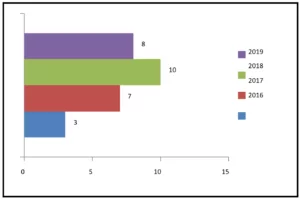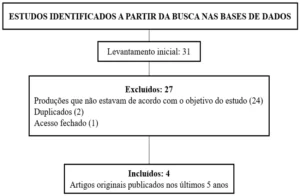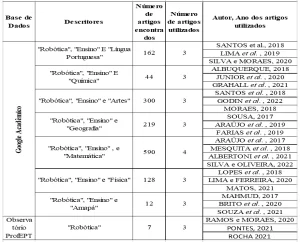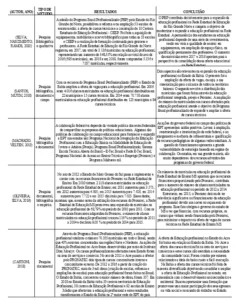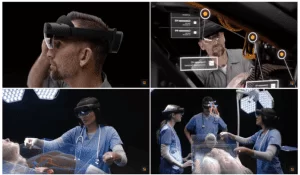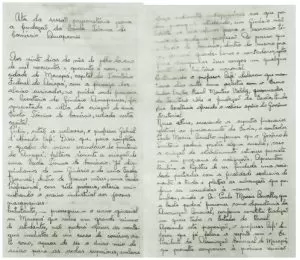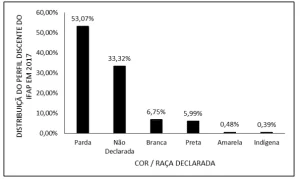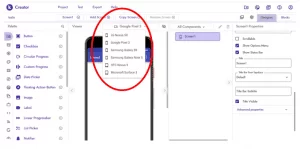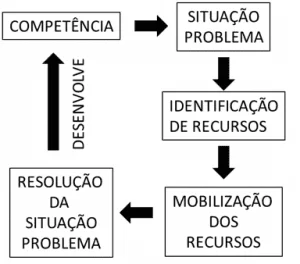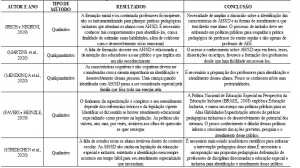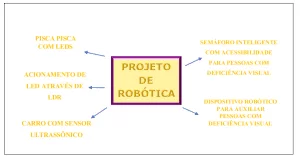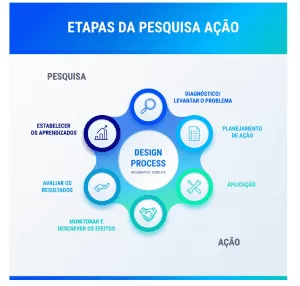ORIGINAL ARTICLE
PESSOA, Andréa Printes Nogueira [1], NOGUEIRA, Francinete Pessoa [2], NORONHA, Jucineide Campos [3]
PESSOA, Andréa Printes Nogueira. NOGUEIRA, Francinete Pessoa. NORONHA, Jucineide Campos. The importance of the social imaginary for the construction of contemporary teaching-learning practices. Revista Científica Multidisciplinar Núcleo do Conhecimento. Year 05, Ed. 10, Vol. 22, pp. 133-144. October 2020. ISSN: 2448-0959, Access link: https://www.nucleodoconhecimento.com.br/education/social-imaginary
SUMMARY
This article brings reflections on the importance of the social imaginary, contextualized from bibliographic research on what is social imaginary and how it works in contemporary teaching-learning. Learning is a process in which we develop our personality, whether physical or mental. In schools in contemporary learning teaching practices, the teacher has the function of systematizing students’ knowledge from their social life, organizing activities, to prepare students to follow norms, values, which are created by society with true meanings and meanings whether in groups or individually.
Keywords: Social imaginary, teaching-learning, contemporary world.
1. INTRODUCTION
To analyze the importance of the social imaginary in teaching-learning, the intense transformations in contemporary education stand out. The educational process undergoes evolution in several aspects, mainly in teaching methodologies, due to continuous social changes, such as: technological development and scientific developments that require improvements in the pedagogical field, to facilitate this process and provide well-being to those involved.
Social imaginary: expressed by ideologies and utopias, and also by symbols, allegories, rituals and myths. Such elements shape worldviews and model conducts and lifestyles, in continuous or discontinuous movements of preservation of the prevailing order or introduction of changes.
In Brazil, educational institutions seek to develop strategies to apply in daily methodology in order to involve teaching-learning based on human coexistence in the face of family life, society and cultural knowledge of their community. Hence the role of the school in modern society needs new teaching strategies, in order to respond to new economic and social demands, with pedagogical practices that implement the use of available technologies in classes.
2. DEVELOPMENT
2.1 THE IMPORTANCE OF THE SOCIAL IMAGINARY
Initially, we must understand what is imaginary. Thus, to begin the study of the proposed theme, we sought to understand this distancing from scientific events and, in a simplified way, the following definition is:
The creative activity of imagination depends directly on the richness and diversity of the person’s previous experience, because this experience constitutes the material with which the constructions of fantasy are created. The richer the person’s experience, the more material is available to their imagination. (VYGOTSKI, 1996, p. 22)
Thus, the relationship between the individual imaginary and the social imaginary is explicit, because it is noted that many situations of human reality are complemented by this incessant search for meanings. With everything, imagination and reality are processes that enable the constant updating of daily living and act in the dimensions of social formation.
This social imaginary is the grouping of norms and values, created by society with meanings and true meanings. In this case, the social or collective imaginary precedes the interaction between the members of a given group. This is because:
Imagination acquires a very important function in human behavior and development. It becomes a means of expanding an individual’s experience because, based on the narration or description of others, he can imagine what he did not see, what he did not experience directly in his personal experience. (VYGOTSKY, 1996, p. 125)
It is worth emphasizing the need to bring meanings closer to the teaching and learning processes, which encourages discourse to understand what is beyond human possibilities, with this can work a dynamic and continuous system.
And in view of this thought, to appropriate the imaginary, is to work concepts and representations in different areas of knowledge, such as: anthropology, sociology, history, among others. Several theorists explain different meanings related to the social imaginary. Postic (1993, p. 13) suggested the following reflection:
Imaginary is an activity of reconstruction, even transformation of the real, due to the meanings we give to events or the inner repercussions they have on us. It is not to move away from the real world; is to follow a parallel path at the same time.
In view of the activities that permeate the transformation as a function of the relevance of the meanings, Pesavento (1995, p. 24) emphasizes: “The imaginary is, therefore, representation, evocation, simulation, meaning and meaning, a set of mirrors where the “true” and the apparent merge, a strange composition where the visible half evokes anything missing and difficult to perceive. Still synthesizing the author’s thought, persevering the study of the imaginary can come to understand meanings and unravel secrets.
In this context, the important thing is that the teacher understands the meanings, symbols and meanings of the imaginary that contribute to education and generate knowledge, providing teaching-learning relationships, due to pedagogical practices.
It is in the school that the possibility of understanding reality is constructed, starting from a curricular proposal that guide scans in the classroom, and later apply tests and evaluations, which generate school results. Thus, activities are projected and made available, based on individual interests, because each one has a differentiated reality and starts to collectively build a humanizing instrument. Making analogy of the imaginary in relation to pedagogy, we hold the statement that:
To imagine is to evoke beings, to put them in a certain situation, to make them live as one wants. It is to create a world at your pleasure, freeing yourself. Anything is possible. Everything happens. In artistic life, imagining is a creative act. In everyday life, imagining is an activity parallel to the action we exercise linked to reality. Imagination is a process. Imaginary is your product. Social imaginary and education: a necessary approach. (POSTIC,1993, p.13)
The imaginary promotes educational practices and leads students to another dimension, knowledge gives meaning to the existence of the school institution. The school is a mediator between culture and the individual, seeks the development of creative intelligence and allows different manifestations that enable the socialization of the individual, education moves imaginaries and produces new meanings and meanings. Highlighted by (CASTORIADIS, 2004, p.129), “society acts according to the meaning it gives to the world and the things that surround […] it language, customs, norms, techniques cannot ‘be explained’ through factors outside the human collectivity”.
Thus, the imaginary is understood as a participant in collective daily life, as the anide of a society in search of validating situations in the field of politics or other social groups, as well as in fields of science. The social imaginary represents the anires that social classes express to guide their objectives, their ideologies, in which they appropriate the evaluation of the past to make the future more authentic based on the valorization of the social structure over the individual, because social life permeates the significant identification of knowledge, values and norms from systems of symbolic representations.
2.2 THE CONSTRUCTION OF TEACHING-LEARNING PRACTICES
Pedagogical ideas have relevant theoretical contributions and have been feeding the thinking of the educational public over the years. Practices are methodological resources that facilitate the teaching-learning process, relate theory to practice and enable the development of questions and arouse the student’s curiosity. Today it is necessary to seek improvement of the educational process, the school has already left the traditional teaching theoretically, and the teacher is obliged to be aware of innovations, and take advantage of creativity and modernization in the classroom, to satisfy a computerized generation, in Brazil the PCNs were organized proposing new pedagogical practices to minimize the results before traditional practices. In the face of the above.
Democratizing teaching is helping students to express themselves well, to communicate in various ways, to develop a taste for study, to master school knowledge; is to help them in the formation of their social personality, in their organization as a collectivity. (LIBÂNEO, 2006, p. 12)
Thus, it is perceived that the educational evolution has gone through several situations, from the traditional school, modern school and today with significant evolution in contemporary school, which with technological advances allowed quick solutions for teaching. But teaching does not depend only on technologies, teaching learning is something complex where we can learn or leave the teachings in the background, or for later, it all depends on the particular interest of the individual.
Schools, regardless of their location or the clientele it serves, have the principle of forming conscious citizens, responsible with intellectual autonomy capable of keeping up with social changes that happen at an increasingly accelerated pace. At this level, the teacher needs to acquire different teaching strategies. For Libâneo (2006, p. 78), “The teacher therefore needs a theory that explains the intended direction for the educational task of humanization of man, extracted from a conception of education as a transforming social practice.” Faced with this need, the pedagogical methods adopted by teachers are important for teaching learning to occur, making an association between theory and the student’s daily life; the disciplinary knowledge of their own field of professional training and the curricular knowledge of the specific areas of their teaching work; and pedagogical design that base the teaching-learning processes.
It becomes relevant for the teacher, this engagement of theory with practice at work with students. It is a process in which the knowledge and experiences discussed in the classroom, their hypotheses, their procedures and the elements of educational policies are described, in addition to the knowledge acquired in the daily trajectory of personal, social, cultural and school life. In this practice, an intertwining favored learning is perceived, in which the teacher not only dominates, but also encourages, to the knowledge of the meanings.
The pedagogical methods between teacher and student becomes a real historical learning, are instruments that interconnect language and facilitate the process of formation of people. Thus, the teacher and the student grow together, because society undergoes several modifications, among these teaching-learning, which is connected in a broad process and increasingly charges the individual.
In this vision each being must adapt, be dynamic, active, respect the differences and knowledge acquired throughout individual or group life. With this, pedagogical practice plays a fundamental role in the intellectual development of the student, it is the center of methodological application in the conduction of learning. The teacher needs to reflect on the question:
To educate is to intervene in people’s ability to be and act. For this, cultural mediations are provided, that is, symbolic and material tools, through a communication process. This is what Pedagogy is all about: the mediation of knowledge and ways of acting. (LIBÂNEO, 2006, p. 215)
By understanding these considerations, one perceives the need for interaction among school members, because they can only enjoy, transform, organize and meet interests if they work towards the collective, because this is what learning and true education of social quality comes from.
Thus, activities that stimulate autonomy involve students in organization, planning and research to exercise the ability to express and communicate. In this context, teachers apply the curricular contents, aiming to adapt them to the need of their clientele, because education is a social action that requires a process of interaction between teacher and student. In the conjuncture in which teaching takes place, pedagogical work in the praxis of the classroom or other educational spaces qualifies the educator as an epistemological being. Soon the teaching know-how and the teaching competence, is closely related to the construction of an autonomy for attentive, reflected, critical and ethical action.
Paulo Freire makes the following placement, adding that:
[…], dialogue is an existential requirement. And, if it is the meeting in which the reflection and action of its subjects addressed to the world to be transformed and humanized are sympathized, it cannot be reduced to an act of depositing ideas of one subject in the other, nor become a simple exchange of ideas to be consumed by the mutants. (FREIRE, 2005, p. 91).
The school today has new educational requirements and the teacher faces challenges, having to abandon old practices and outdated methodologies, because they are no longer sufficient to meet the Brazilian educational system, the school already has a contemporary learning profile, which favors students to face the challenges that society imposes. Therefore, it is important to make a self-analysis, of what can be done to implement pedagogical practice and overcome the longings in the face of the need for change. Like this
Learning within the view of content pedagogy, is to develop the ability to process information and deal with the stimuli of the environment, organizing the available data of the experience. Consequently, the principle of meaningful learning is admitted, which supposes, as an initial step, to verify what the student already knows. The teacher needs to know (understand) what students say or do, the student needs to know how to understand what the teacher seeks to say to them. (LIBÂNEO, 2006, p. 42)
And in view of these demands, with the objective of new perspectives in the area of education, for the methodological transformation of the teacher’s practice in decision-making in the classroom and in other educational spaces, leads them to produce knowledge with innovative methodologies. It is up to him to dynamicize, suiting his creatively, in classroom practice, in the context of interaction with students, and in different methodological activities. Thus, pedagogical praxis encourages educators to be a hermeneutic person, leading them to be mediators of knowledge, for a dynamic, reflective and transformative practice.
2.3 CONTEMPORARY TEACHING-LEARNING
The school in the 21st century comes to follow social changes, with the implementation of new technologies that influence the cultures and relations of society at an accelerated pace, and the information is updated in fractions of seconds. With this, there were educational requirements, today’s school does not follow and should not follow the same methodologies or teaching practices of previous times, need to guide and face new challenges.
The old practices, outdated tools and retrograde methodologies no longer meet the needs of current education. It is necessary to take into account that information has become faster and more accessible, making students more autonomous and connected in new technologies and social media, because they are revolutionizing the way of teaching and learning.
This all requires a school with a modern learning profile, which helps the student to overcome all the challenges that society attributes. At this juncture, it is necessary to emphasize the importance of the teacher’s continuous training in order to innovate and provide improvement in pedagogical practices and always keep up with what the educational system itself charges, in line with society.
In Brazil over the years, new pedagogical proposals are implemented in order to provide improvements in the educational system. So, Brazilian education at all levels has been undergoing transformations with educational actions that allow to know certain systems.
It is a pedagogy that takes into account social determinants and that provides criticism of the mechanisms and impositions resulting from the organization of society in antagonistic social classes; at the same time, it is a pedagogy that seeks, within the school, pedagogical-didactic answers that allow the exercise of this criticism, based on the social determinations of concrete pedagogical situations. (LIBÂNEO 2006, p. 12).
The recent example of reforms was the proposal “Education for all” in 2001, as a salvationist for education, for the improvement of the quality of learning, such as the condition of development, poverty reduction, employability and better quality of life.
The visible transformations that have been taking place in contemporary society with rapid changes reflect in the educational system, because education is a social phenomenon that contributes, influences and enables a new social paradigm of teaching-learning. Education should be focused on the development of skills and essential skills for students, and in this context the teacher must have a peculiar posture that directs the educational process. The new technologies hold attention, since the computer, television, internet data show, mobile phones and etc., favor the construction of knowledge and facilitatecognition, creating a very stimulating environment of teaching learning.
When it comes to the development of skills and abilities, the teacher needs to know teaching strategies, seek the resignification of the actions practiced in time and in the space of the school environment in order to ensure that the student’s longing is not contradicted. Thus, according to Libâneo (2006, p. 78), “The teacher needs a theory, which explains the intended direction for the educational task of humanization of man, extracted from a conception of education as a transforming social practice”.
Education is founded by beings capable of creating and recreating, it is unveiled at every step, between teachers, students and all the segments of society, so it is an ongoing process. From school the human being organizes his universe of ideas and gives in to new possibilities of universal knowledge, provided that following the pedagogical processes of teaching.
In contemporary school the challenge for many teachers is to transform technologies into an ally of education, today it is necessary to create innovative teaching strategies, even if using traditional resources and in them is always present books, pencil, pen and paper. And when the school has new technologies, especially multimedia is necessary to avail itself of interactivity.
Even so, innovations can and need to contain technological instruments, as predicted in the National Common Curriculum Base (BNCC). There are several ways to introduce these practices into pedagogical activities, such as: in productions, in dynamic reading proposals, in the applications of evaluations and simulations and in the recurrent appreciation of educational stories and films. In this dynamic environment, the didactic use of the cell phone, for example, can help and motivate students in the teaching-learning process.
[…] the teacher would act as a learning stimulator whose main initiative would be up to the students themselves. Such learning would be a spontaneous result of the stimulating environment and the living relationship that would be established between the students and between them and the teacher, for this, each teacher would have to work with small groups of students, without which the interpersonal relationship, essence of the educational activity, would be hindered; and in a stimulating environment, therefore, endowed with rich teaching materials, class library, etc. (SAVIANI, 1995, p. 20)
Within this context, the teacher is the mediator of knowledge, providing significant situations and experiences to students who become subjects of their own formation. It is necessary to involve the whole society to generate a democratic education. But for the development of an information society of equality, there must really be policies of access to information directed to all, to the constant progress and transformation of humanity. Therefore education needs a new education system, which will only be possible when the whole society becomes involved.
FINAL CONSIDERATIONS
The social imaginary arises in a socio-historical-cultural context and decisively influences social relations and is determinant for teaching-learning, with imaginary meaning and symbology. But we know that the educational process demands and a lot of updating, pedagogical practices are reinvented and creating new ways of teaching and learning, the teacher needs to always update himself. The importance of an interdisciplinary and multidisciplinary education that meets the new educational reality of globalization of knowledge.
The educational process needs a lot of updating, the methods are constantly evolving and improving pedagogical practices and new way of teaching and learning it is necessary the commitment of all to make education excellent in this country.
The teacher needs to have an open mind and must combine technological transformations in order to benefit their classes, improving methodological practices that promote the teaching-learning process.
The new paradigm of social relations is tied by technology, regardless of any socioeconomic and cultural environment, students create mental and cognitive structures that group and expand from ICTs. The teacher, in turn, constitutes a new method of transmission of teaching learning and, simultaneously, of controlling this concept, because the way of evaluating students also needs to be differentiated and adapted to the new teaching standard.
Thus, education must go beyond a set of procedures, standards and techniques, it is a constructive and permanent process. The school needs innovations, but everyone needs commitment to social transformations in view of the well-being of society as a whole.
REFERENCES
CASTORIADIS, Cornelius. As encruzilhadas do labirinto VI –figuras do pensável. Rio de Janeiro: Civilização Brasileira, 2004.
FREIRE, P. Pedagogia do Oprimido. Rio de Janeiro: Paz e Terra, 2005.
LIBÂNEO, José Carlos – Democratização da escola pública – a pedagogia crítico-social dos conteúdos, 2006, 21º edição.
PESAVENTO, Sandra. Em busca de outra história: imaginando o imaginário. Revista Brasileira de História, São Paulo, v. 15, no 29, 1995.
POSTIC, MarceI. O imaginário na relação pedagógica. Rio de Janeiro: Jorge Zahar. 1993.
SAVIANI, Demerval. Escola e Democracia. Campinas: Autores Associados, 1995.
VIGOTSKY, L S. La imaginación y el arte em la infância. (Ensayo psicológico). 3. ed. Madrid, Espanha: Akal., 1996.
[1] Graduated in Physics; Corporacion Universitaria De Humanidades E Ciencias Sociales De Chile. Master’s degree in Educational Sciences.
[2] Graduated in Mathematics and Specialist in Mathematics Teaching and Management and Pedagogical Coordination and Teaching of Higher Education SEDUC; Corporacion Universitaria De Humanidades E Ciencias Sociales De Chile Master’s Degree in Educational Sciences.
[3] Graduated in letters and specialization in Methodology of Portuguese Language Teaching and Specialization in media in Education; Corporacion Universitaria De Humanidades E Ciencias Sociales De Chile Master’s Degree in Educational Sciences.
Submitted: September, 2020.
Approved: October, 2020.

